Meaning, ethics, consciousness
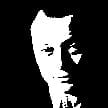
“My personal view is that in a future science reality will be neither mental nor physical, but somehow both and somehow neither.”
Wolfgang Pauli
Consciousness enables living beings to communicate with each other in a content-related, goal-oriented and meaningful way. It makes it possible to search for, recognize and apply meaning. It enables perception and insight.
Reducing consciousness to material processes, which, via the sensory organs and the stimulus conductors, cause the brain to initiate certain biophysical and biochemical processes, is far from sufficient to explain the variety of conscious phenomena. That these interactions exist in the brain is undeniable, but in our opinion only the material reaction that triggers consciousness processes in the physical body so that it can perform certain tasks.
Without individual and collective consciousness, the idea of an overarching conscience and ethics resulting from it is superfluous. Without consciousness there is no sense and no morality. This is the gateway to arbitrariness, indifference, exploitation, utility thinking and destruction. A reduction of mental processes to material causes removes any sense from our deeds.
Life is consciousness - consciousness is life
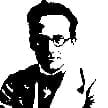
“A purely rational world view without mysticism is an absurdity.”
Erwin Schrödinger
Consciousness is the ability and at the same time the phenomenon of perceiving oneself and others as individuals and communicating with each other. It equips us with certain attributes, such as a specific degree of free will, the ability to decide and distinguish, intelligence, emotions, empathy, self-reflection, memory and reflective experience, intuition, ambition, sensual outer and supersensory inner perception, the active strive to acquire mental and physical abilities, concentration and focusing, the search for meaning and analysis, understanding of context, qualitative and quantitative cognitive ability, goal orientation, conscience and morality, a sense of the self, the feeling of being alive and of being integrated into a living organism, a group and the world.
These attributes distinguish us from inorganic matter and from artificial intelligence, since the above mentioned attributes are not perceptible in these systems or do not manifest by themselves, since there is no reason, no goal and no purpose to act independently or to develop such attributes. Even the supposedly inherent survival or reproductive instinct, in our opinion, requires a rudimentary form of consciousness to become active. AI on the other hand always needs the conscious living master who will start this system.
Existential and controversial questions of the time
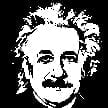
“It is more difficult to shatter a preconceived opinion than an atom.”
Albert Einstein
Is there consciousness? What is the mind? What about God, soul, reincarnation…? People have been arguing for a long time. Everyone believes that his interpretation of reality is the right one. Whether between the natural sciences, the humanities and religion. But everyone believes that only they are right, that only their interpretation is correct and “objective”. But everyone believes! Because objective reality is always interpreted subjectively.
Often the truth lies outside or above these belief systems, which claim to be the only ones that can explain life, nature or God.
Therefore we consider it necessary to observe the objective reality surrounding us and the subjective reality inherent in us as the two equal poles and to examine how they interact and influence each other.
Reality, spirit, matter
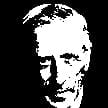
“Higher being means a higher connection.”
Pierre Teilhard de Chardin
We share the view that consciousness is not a purely material product of the brain and that objective reality can never be fully objectively explained by our subjective observation and interpretation.
For us, matter and mind form a dynamic and interactive system, which can never be separated, since reality, if not observed, analyzed and described, is not part of the observer’s consciousness and thought. It may exist, but nobody sees it.
Only the active conscious connection between the observer’s mind and the material object allows meaning and purpose and thus cognition.
Are we nature or are we culture?
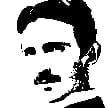
„My brain is only a receiver; in the universe there is a core from which we receive knowledge, power and inspiration. I have not penetrated into the secrets of this core, but I know that it exists.”
Nikola Tesla
A higher connection can be observed in the relations that start on the subatomic level, where molecules relate to an atom, millions of atoms form a cell, a tissue, an organ, an organism, an entity, a family and a society. And each level seems to be permeated by consciousness, information and energy as to function properly in order to serve the next higher level.
Mens agitat molem – Mind moves matter
As Max Planck very distinctly formulated this observation in these statements:
“Gentlemen, as a physicist who dedicated his whole life to sober science, to the study of matter, I am certainly free from the suspicion of being taken for a swarming spirit.
And so I say this after my explorations of the atom: There is no matter in itself.
The spirit is the source of all matter. All matter is created and exists only through a force that makes the atomic particles oscillate and holds them together to form the tiniest solar system in the universe.
Spirit creates matter!
But since there is neither an intelligent force nor an eternal force in the whole universe – mankind did not succeed in inventing the much longed-for perpetual motion machine – we must assume a conscious intelligent spirit behind this force.
This spirit is the source of all matter.
Not the visible, but transient matter is the real, true, actual. For without spirit, matter would not exist at all, but the invisible, immortal spirit is the true.
But since spirit per se likewise cannot exist, but every spirit belongs to a being, we must necessarily assume spirit beings.
But since spirit beings cannot be of themselves either, but must be created, I do not shy away from naming this mysterious creator just as all the cultural peoples of the earth of earlier millennia have called him: God.
Thus the physicist, who has to deal with matter, comes from the realm of matter into the realm of spirit. And this is the end of our task, and we must pass on our research into the hands of philosophy.
Truely, we have to accept that a being superior to us in wisdom, which can see through every wrinkle in our brain and every movement of our heart, would recognize our thoughts and actions as causally conditioned. However, there is no disparagement of our justified self-confidence in this.
Let us share this point of view with the followers of the most sublime religions. As far as we ourselves, on the other hand, appear as a recognizing subject, we must renounce a purely causal evaluation of our present ego. Here, then, is the place where freedom of will sets in and asserts its place without being displaced by anything.”
